November 12, 2019
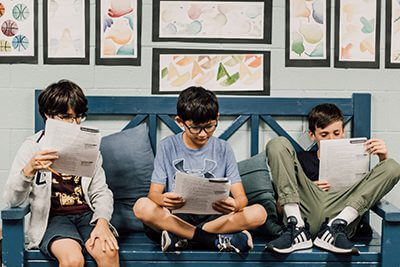 Please join us on the Mounds Park Academy campus for lunch on Thursday, December 12 at 11:30 AM.
Please join us on the Mounds Park Academy campus for lunch on Thursday, December 12 at 11:30 AM.
This small-by-design event will include a casual lunch with students and administrators, as well as opportunities to see inside the classrooms where students and teachers are in action during a regular school day.
“Partnering with MPA to help us educate and raise our children gives us a great sense of comfort—the school we chose is as devoted to seeing our children develop to their fullest potentials as we are,” says MPA parent Patricia Aw-Yang. This event will allow you to see exactly how MPA does that for all students.
Kindly RSVP in advance for this engaging program at moundsparkacademy.org/RSVP. If you have any questions, contact the Office of Admission at 651-748-5577 or admission@moundsparkacademy.org. Students are welcome, but not required to attend.
We look forward to getting to know your family!
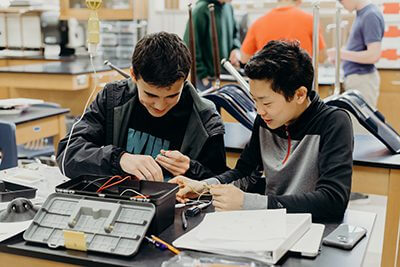 How we work, and learn to work, is changing for real and in real time. The technology, pace, and business models that define our local and national economies are shifting almost by the day, with old structures retiring and new approaches taking center stage. This fundamental change in career paths and professional expectations is shaping how progressive schools view the skills they teach students, and how they create opportunities for students to grow and prepare in and beyond the classroom.
How we work, and learn to work, is changing for real and in real time. The technology, pace, and business models that define our local and national economies are shifting almost by the day, with old structures retiring and new approaches taking center stage. This fundamental change in career paths and professional expectations is shaping how progressive schools view the skills they teach students, and how they create opportunities for students to grow and prepare in and beyond the classroom.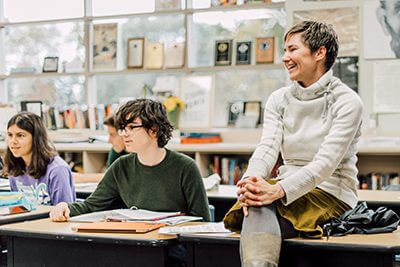 by Dr. Bill Hudson, Head of School
by Dr. Bill Hudson, Head of School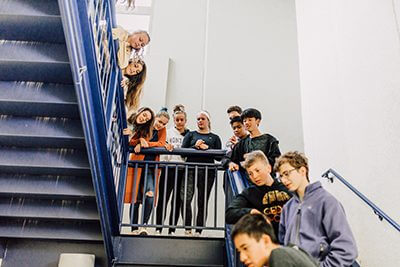 Physics 9 represents a change to the science curriculum starting in the 2019-2020 school year at MPA. For the first time, ninth graders are taking physics, and this adjustment to the science sequence at MPA allows for a variety of electives in the twelfth-grade year.
Physics 9 represents a change to the science curriculum starting in the 2019-2020 school year at MPA. For the first time, ninth graders are taking physics, and this adjustment to the science sequence at MPA allows for a variety of electives in the twelfth-grade year. by Neelu Boddipalli, MPA Parent and Trustee
by Neelu Boddipalli, MPA Parent and Trustee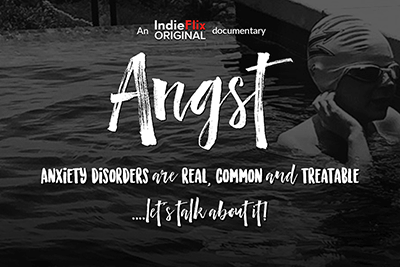 by Jenn Milam, Ph.D., Middle School director
by Jenn Milam, Ph.D., Middle School director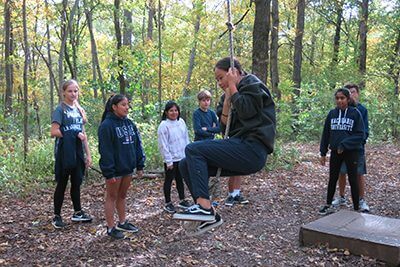 By Dr. Bill Hudson, Head of School
By Dr. Bill Hudson, Head of School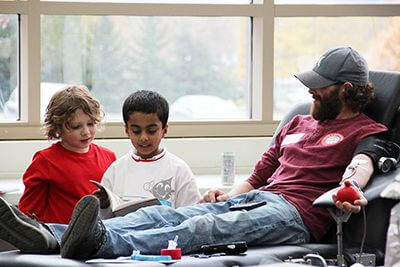 The world starts small when you’re a kid. In a relative bubble of family, friends, and school, it can be challenging for children to think beyond their own backyard, or to reflect on how they can support or contribute to a community that’s different from their own. Cultivating a service mindset in students early is a powerful key to unlocking a larger world view, while also preparing them for college and creating distinction in their educational experience.
The world starts small when you’re a kid. In a relative bubble of family, friends, and school, it can be challenging for children to think beyond their own backyard, or to reflect on how they can support or contribute to a community that’s different from their own. Cultivating a service mindset in students early is a powerful key to unlocking a larger world view, while also preparing them for college and creating distinction in their educational experience. by Dr. Bill Hudson, Head of School
by Dr. Bill Hudson, Head of School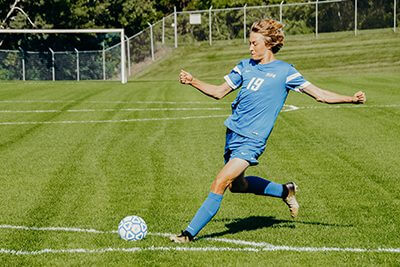 How School Sports Lift The Mind, Build Skills And Improve Mental Health
How School Sports Lift The Mind, Build Skills And Improve Mental Health